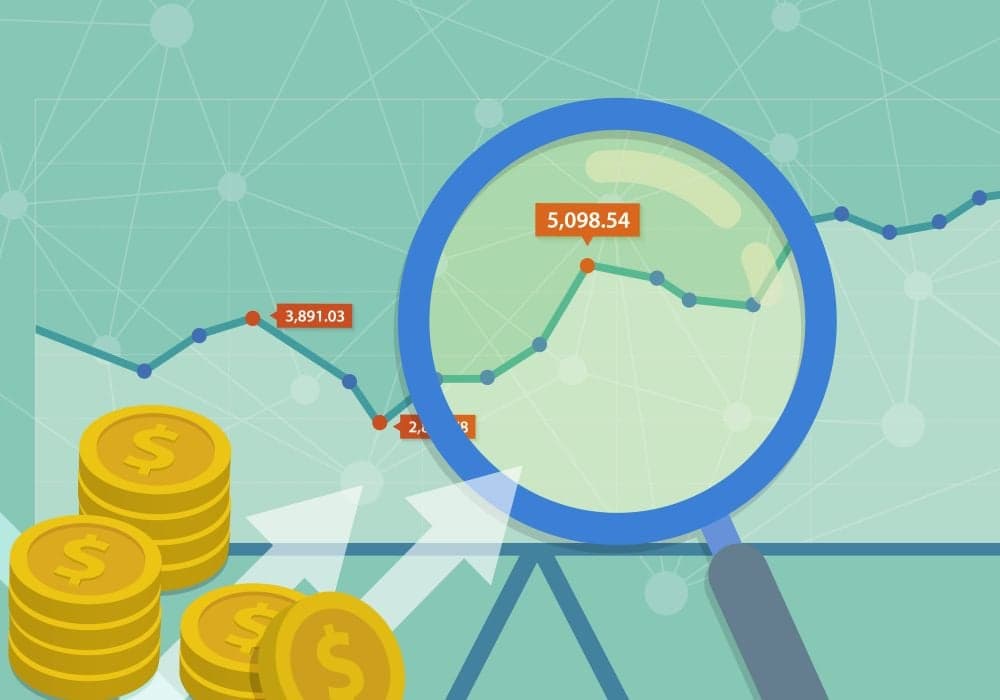
VCs, Angels, LPs, And Entrepreneurs Should Care About Prorata Rights
Prorata rights are one of the most important rights of private market technology investors and yet are seldom fully understood. They often create the biggest tensions between investors who are investing at different stages in the business.
These tensions seep out in some angels or seed funds publicly or semi-privately deriding later-stage VCs for their “bad” behaviour. I have seen bad behaviour from later-stage VCs, believe me. But I have seen equally bad behaviour from super-early-stage investors.
As always a balanced perspective is in order. Here’s what you need to know.
Why Investors Care About Prorata Rights
Prorata investment rights give investors the right to invest in a startup’s future fund-raising rounds and maintain their ownership % in the company as the company grows and raises more capital. This is important for nearly every institutional investor because once you have 25–50 investments being able to “follow” the investments that are working well is critical to making money. It’s why I often advise angel investors to be careful about assuming that being an angel investor is a profitable exercise unless you have the ability to have a wide-enough portfolio to have a few companies doing extraordinarily well plus deep enough pockets to follow your winners.
For institutional money, prorata rights are compulsory and usually non-negotiable. Put simply — if you invested early in Google, Facebook, Twitter, LinkedIn, etc. would you want to give up the right to invest in subsequent private-market rounds?
Do Investors Always Take Up Their Prorata Rights In Later Rounds?
The simple answer is “No.” Some do, some don’t.
Why would somebody pass on taking their prorata rights? For starters some funds are small and thus while they put $750k into a company to own 10% of the company they might not be able to write another $2 million if the company then raises a $20 million round (10%). Or an A round investor who wrote a $5 million for 25% of a company may not be well positioned to write another $5 million (25%) of a $20 million round. Their strategy might be to have 25 companies per fund of $3–7 million total invested and thus $10 million might be more risk in one deal than they typically like to have.
So the longer answer is: sometimes they take it, sometimes they don’t. And sometimes they take part of their prorata right. The other reason worth being aware of when dealing with your investors is that sometimes early investors prefer lower prices (say $8 million pre) and if markets are efficient then when your company raises its next round at say $50 million pre that earlier investor might think that they are less likely to make a return on a $10 million financing where they put in $2 million at $50m pre than they are to make a return on their earlier capital.
Thus, begins the dance. New investors sometimes want early investors to put in money to “prove” they have confidence in the new price. New investors sometimes want older investors NOT to participate so that the new investor can take more of the round.
All the confusion you hear from friends or read in the press is related to this nuance that early investors demand prorata rights and sometimes fight like hell to maintain them (Facebook problem) and sometimes prefer not to take them (overvalued company that they perceive isn’t doing as well as new investors coming in think).
Make sure you have an open conversation with your early investors about their interests in participating in subsequent rounds as those fund raisings become imminent and that might range from “Are you willing to show some support in the next round, which might be important to incoming investors?” to, “Are you willing to step back a small amount from prorata to make room for new investors if need be?” Knowing how your investors are thinking is critical as is open communication.
Finally, some early investors specifically like NOT taking up their prorata. This is for a more complicated reason I call “the mark-up game.” If you invested at $8m pre-money and put $2m in (thus you own 20% of a company at a $10m post-money valuation) and if you put another $2m (your 20% prorata stake) into a round at a $40m valuation raising $10m ($50m post) you end up with half your money at $8m pre and half at $40m pre thus your average price goes up dramatically. You now own 20% of a company valued at $50 million but you’ve put in $4m to get that. If you didn’t write any money then you would own 20% for your first investment but this is reduced by 20% for the next investors stake (assuming they put the full $10m) so you now own 16% of the company at $50m post (with $2m invested).
In the first case, my stake is worth $10 million (20% of $50m) for $4m invested or a 2.5x return (on paper). In the second case, my stake is worth only $8 million (16% of $50m) but it’s only on $2m invested so my return multiple is 4x. Neither case is better or worse — they more depend on investor strategy and their outlook on the potential of the company. Generally, the larger the investor is the more they will want to invest in subsequent rounds and the smaller the less likely they will always want to. A first or second-time fund has an easier time fundraising when they can show a few 4–8x’s in their portfolio than if they always average up. That’s why I call it “the mark up game” and I’m generally not a fan.
Why Prorata Rights Used To Be Less Of A Big Deal To Angels
In the old days there weren’t many fights about whether angels would take their prorata rights in financing rounds. In part this is because conventional wisdom for angels was that it didn’t make sense to write a $1 million+ check in later rounds to follow your prorata. Plus, many VC rounds traditionally didn’t guarantee angels prorata rights unless they were “major investors” who wrote large checks.
In addition, because the entire industry has changed because it is cheaper to start a tech company these days — there are simply way more angel rounds.
Why Prorata Rights Are Becoming A Bigger Deal To Angels
There are just one hell of lot more insanely rich angels where writing a couple of million dollar checks in a follow-on round is actually achievable. And there are great new platforms like AngelList that help bring together groups of angels where the collective power of the angel has increased in ways that clearly benefit these angel groups.
But perhaps the biggest change driving angels these days is just how much more valuable prorata rights actually are. I believe I was one of the first to point this out publicly. A day after I published this Changing Structure of VCarticle I noticed at least one “Angel Prorata Fund” on AngelList. So if there are platforms like AngelList that help scoop up the prorata rights of angels in deals like Uber, Airbnb, DropBox (or the future companies like these) then perhaps the prorata fight gets worse.
Why? Because tech companies are getting bigger more quickly than at any time in history. Because companies are raising way more capital in private markets than they ever did in the past. And because they are so much larger by the time they go public (think: Facebook $104 billion, Twitter $18 billion, Alibaba > $200 billion) the private value of the most successful companies pre-IPO is more valuable than it ever was. The value is being captured before the companies go public, not afterwards.
Why Prorata Rights Are Now Sought Out By LPs
People all across the value chain have taken notice including Limited Partners who are the people who invest in VC funds in the first place. These are typically: University Endowments, Foundations, Public Pensions, Insurance Companies, Family Offices, Sovereign Wealth Funds and Fund of Funds.
The number of these groups that did “direct” investments in venture capital used to be relatively small. Direct investment strategies usually mean that they invest in several VC funds and then wait for opportunities to invest in the funds’ portfolio companies directly. The challenge historically was that if they were getting a call by VCs to invest they would have to ask themselves the question, “Why am I so lucky to get this call instead of a later-stage VC?” There are some valid reasons but a healthy dose of caveat emptor has been in order.
But with the massive growth of seed funds being raised and the huge increase in the intrinsic value of prorata rights many more LPs have stepped in to take their VCs’ positions. What would you do as an LP fund if you backed a seed-stage VC who had a position in Twitter, Pinterest, etc. but didn’t have funds to back-up their prorata rights? You’d step in, of course, and do a direct investment in your funds’ prorata rights.
Why Prorata Rights Are Being Guarded By VCs
But there is never a simple answer. As I pointed out here, many VCs have raised or are raising “prorata funds,” which are sometimes called “overage funds” or “opportunity funds.” The simple reason why? Prorata rights.
Why not just let your LPs do directs? In many cases, this has been the right solution (it’s what we at Upfront have done for 20 years) but increasingly this is becoming difficult due to the sheer number of LPs now wanting to go direct. If you have 20–25 LPs and 8–10 of them want direct investments how do you choose for each investment prorata? And how do you avoid the problem if explaining to entrepreneurs who these LPs are if they are going to invest directly into the company?
This is why opportunity funds are emerging and these will become increasingly popular as long as the economics are favourable to LPs and are not simple land grabs by VCs looking to manage larger funds.
On the other side, if I were an LP I would probe hard on the “opportunity fund” strategy. The challenge is that if too many opportunity funds are set up and they follow quickly on their “obviously winners” (Shoe Dazzle, Fab, etc.) some may get caught out paying too high of prices for what perhaps will be one day be good deals but not at the prices being paid.
Oy. If only this industry were easy.
The Prorata Fight — Between The Rounds
Much of this historically didn’t matter to entrepreneurs. At every round, there was the “funding dance” between early investors and late ones. Usually, it was the later ones forcing earlier investors to write checks to prove that the new investor wasn’t being suckered into a higher price. But these days with many “mega funds” ($600m — $1b+) often they care more about writing a large check and getting large ownership percentages than they do about proving the earlier-stage investor has confidence. If they trust their own due diligence process why worry about a silly thing called “signalling?”
So, now the fight often happens. Angels/seed want their full prorata. Later stage investors want a maximum size check. As the rounds progress more and more people are fighting. How does this get resolved?
If you ask an early-stage investor it’s the “greedy late-stage investors who are screwing me out of my prorata rights.” In fact, I was at a recent early-stage VC/LP conference where this was accepted as conventional wisdom. Late-stage investors are saying, “You guys got your ownership — if we’re going to ‘pay up’ and write a $30 million check you need to be fair and step back from your full prorata. Maybe take some. Maybe take none.” So they play hardball and say, “If your investors won’t give up prorata rights we won’t invest.”
Entrepreneurs can be caught in the middle.
Wait A Second, What About Entrepreneurs? Aren’t They Getting Screwed?
Sometimes entrepreneurs get screwed. This might happen because to meet all investors needs they end up selling too much of the company, taking too much dilution and feeling beat up. If you listen to conventional wisdom this is the only thing happening.
As I like to point out, the truth is usually more nuanced than conventional wisdom.
Smart entrepreneurs have often used this competition / appetite to invest in prorata rights to their advantage. How? Have you noticed the increase of founders selling their personal stock in what is known as a “secondary?” As in — the company may or may not ultimately succeed but I’m going to take $2–5 million off of the table now to de-risk my personal situation.
This is a direct result of the prorata shuffle more than just goodwill by investors. Truth lives in subtleties and nuance. Understand trends more intimately and you can use them to your advantage.
The problem with information flow for founders is that there are 100x entrepreneurs to investors so you’re more likely to hear a louder amplification of this perspective and you’ll also find most investors won’t give away the playbook.
When investors do talk it also is biased towards early-stage points-of-view both because there are 10x early-stage funds to late stage funds and the earlier the more likely to blog (because to be a large, late-stage fund you’ve likely been around for 30+ years so you didn’t need to use blogging to build an audience, dealflow, brand awareness, etc.
That’s why you keep hearing how smart convertible notes are when they truthfully screw founders daily and are mostly a benefit to the accelerators, angels & seed funds that espouse them. The term “angel” originated because they once were so benevolent that they acted often out of founders’ interests than their own. Now that “angelling” is a big business and seed funds are booming — I think the term angel should simply change to “individual investor” in the way that “Super Angels” became “Micro VCs”.
All investors should be considered exactly that: Investors. The sooner entrepreneurs understand that the sooner they can begin to understand incentives, motives and likely reactions to funding rounds and to prorata rights.
I am personally an early-stage investor but I try to be more philosophical about motives across the entire value chain and not ascribe “good guys” and “bad guys” nomenclature to early-stage investors vs. late-stage investors but rather look at economic motives and realpolitik.
The fight over prorata rights has goods & bads and smart entrepreneurs can use this to their advantage in a bull market like now. Times won’t always be good. The rules change and when they do they change quickly. As of the time of this publication — prorata rights are more the entrepreneurs’ friend than enemy.
VC Approaches To Prorata Rights And How We’re Solving This At Upfront Ventures
Often, VCs don’t allow small investors prorata rights. I actually understand this a bit. If you as a VC are dealing with a larger downstream VC and decide it’s in the best interest of the company to give up half your prorata right (even if you prefer not to) you don’t want 15 other earlier investors saying they won’t give up any of their prorata rights.
So historically many — including myself — including the “major investor” provision so that anybody who wrote a large check would get the guaranteed prorata rights. To be clear — that doesn’t mean angels don’t get prorata rights — it merely means they aren’t guaranteed. I liked this historically because then as a group we could decide what to do rather than requiring unanimity.
I have a new approach I’ve started implementing. I don’t want angels to get screwed. So I’ve started guaranteeing angels prorata rights regardless of their check size. But I’ve started putting in a clause that the majority of our class of preferred shares can vote to waive these rights entirely or in part. And to the extent that I waive my rights (if we constitute a majority) then everybody in the round must waive their rights. That is the most founder friends AND angel friendly way of doing it that I have found.
BUT. And there’s always a but.
I include a clause that to the extent that the majority does take part of its prorata it must offer the same to angels who have participated in that round in the exact same proportion as the majority takes.
So if I as 80% of a round work with the CEO and determine that it makes sense for us to only take 40% of our prorata to make room for a new, important, investor and not overly dilute management then I can require all people in my round to do so. But I can’t secretly take 50% while offering angels 0%. That seems fair. We are all bound to the same economics.
And it is bad for entrepreneurs not to have a “majority” clause because if larger investors give up prorate rights you don’t want to negotiate with each and every angel or small investor.
[This post by Mark Suster first appeared here and has been reproduced with permission.]































 Ad-lite browsing experience
Ad-lite browsing experience